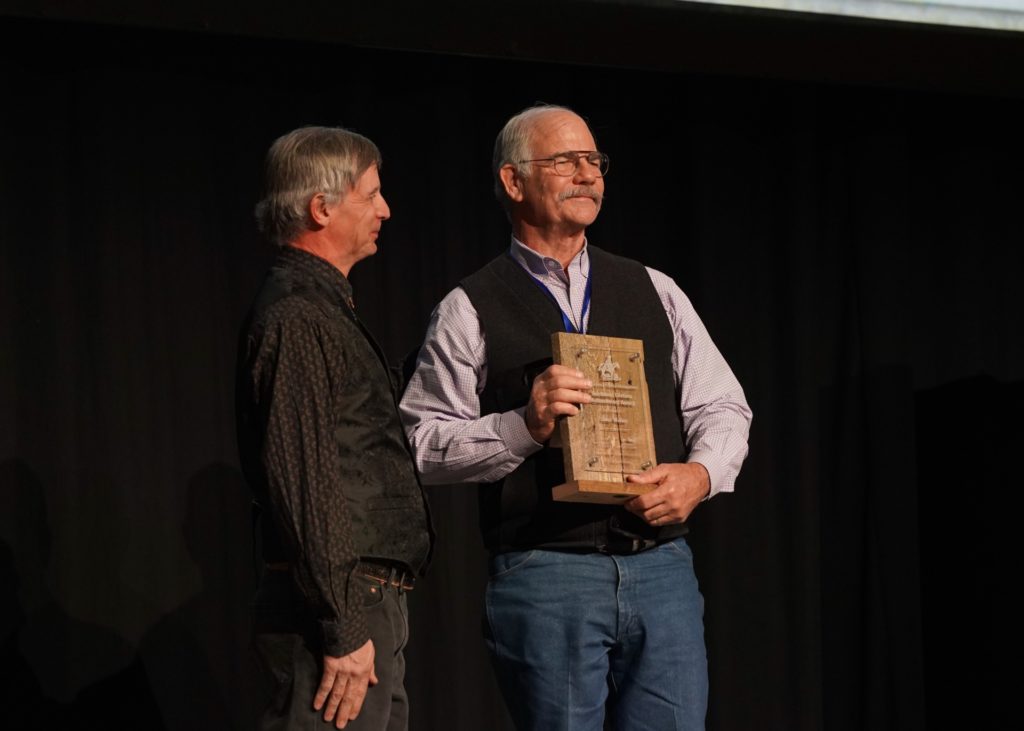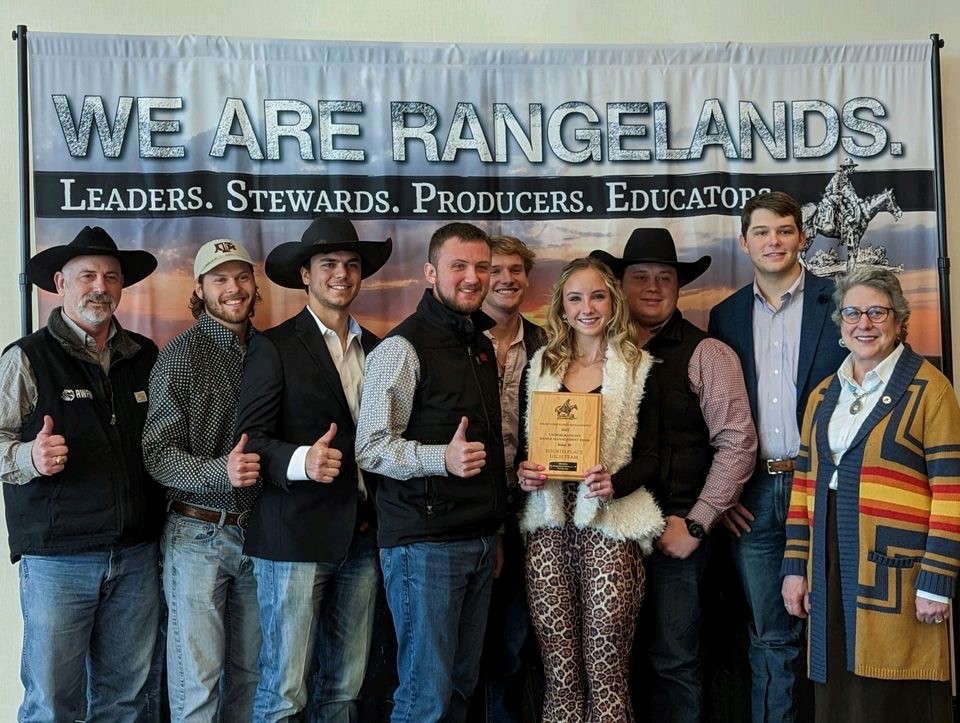Top awards and honors bestowed by Society for Range Management
Texas A&M faculty, alumna and students among recipients
Texas A&M AgriLife and Texas A&M College of Agriculture and Life Sciences faculty, students and alumna were recognized for their positive impact in the field of rangeland science, as well as academic skill at the international Society for Range Management conference held Feb. 12-16 in Boise, Idaho.
Lifetime award recognitions

John Walker, Ph.D., Texas A&M AgriLife Extension Service range scientist, San Angelo, and professor in the Department of Rangeland, Wildlife and Fisheries Management, received the Sustained Lifetime Achievement Award, recognizing more than four decades of substantial contributions to rangeland science and management.
“The Society for Range Management has been very important in my career,” Walker said. “Most of my mentors were members of the organization, held leadership positions and have received similar awards. It feels good to be recognized alongside the people I respect.”
Walker’s passion for sustainable, rangeland-based livestock production has resulted in research spanning the U.S., Israel and South Africa. In addition to his work in forage-fed beef production and multi-paddock grazing, Walker is recognized as a pioneer in the field of targeted grazing, having served as editor and co-author of “Targeted Grazing: A Natural Approach to Vegetation Management and Landscape Enhancement.”
He also established the Society for Range Management’s Targeted Grazing Committee, a cohort of practitioners, land managers, and research and extension professionals who educate and certify targeted grazing service providers.
Further, he was the first to develop near-infrared spectroscopy calibrations of feces to determine the vegetation composition of livestock diets. This optical imaging technology, which utilizes broad-spectrum light to illuminate different chemical compounds, is considered a reliable and cost-effective tool that can assist in guiding rangeland management decisions.
Walker’s current research focuses on the selective breeding of goats to consume species of juniper, a woody plant known for its detrimental encroachment on rangelands. Following years of research, he and other collaborators developed a line of goats known as the Aggie Cedar Eaters that consume roughly twice the amount of juniper as the average goat.
In addition to his primary research focus, Walker has published studies on livestock guardian dogs, rangeland hydrology, wool metrology and carbon cycling on rangelands.
Jenny Pluhar, Texas A&M alumna and executive director of the Texas Grazing Land Coalition, received the W.R. Chapline Land Stewardship Award celebrating a legacy of maintaining and improving rangeland resources. Pluhar holds a master of science in range science from Texas A&M University and serves on the external advisory committee for the Department of Rangeland, Wildlife and Fisheries Management.
“The recognition of John and Jenny by such a respected, international organization truly speaks volumes about their character and professional dedication,” said Roel Lopez, Ph.D., head of the Department of Rangeland, Wildlife and Fisheries Management. “Thanks to them and the tireless efforts of many others, Texas A&M University and Texas A&M AgriLife maintain a reputation as prominent leaders in rangeland management and conservation.”
Students excel in academic competitions

Members of the Texas A&M Range Club earned fourth place honors in the Undergraduate Range Management Exam with two students placing in the top 10% of participant scores.
Garrett Seeger, a senior who will graduate with legacy degrees in rangeland ecology and management and ecological restoration, took seventh place out of 165 participants from across Central and North America. Christophe Peralt, a junior pursuing a legacy degree in rangeland ecology and management, earned 11th.
“The exam covers a wide variety of rangeland subjects,” Seeger said. “It’s essentially an amalgamation of all the coursework you take as an undergraduate range student.”
This was the first time Seeger and other team members participated in the competition.
Thanks to their high scores, Seeger and Peralt are exempt from the examination to become a certified professional in range management, a title administered by the Society for Range Management.
“Participating in the contest has given me a stronger foundation in the field of rangeland management, as well as a jumpstart in my career after being exempt from the rangeland professional licensing exam,” Peralt said.
David Rowley, a graduate student within the Department of Ecology and Conservation Biology, took home first-place honors for best oral paper, as well as second place for his poster presentation. Rowley’s work focuses on mapping grassland plant communities subjected to nutrient influx and disturbance using unmanned aerial vehicle remote sensing and machine learning.
“This was an incredible experience,” Rowley said. “It was very interesting to see the range and grassland work being done not only in the southern plains, but also in the northern plains and western regions. I was able to spend a great deal of time connecting with my fellow Texas A&M graduate students and USDA Agricultural Research Service personnel from across the country.”
Late Texas A&M faculty member honored
The Plant Identification Contest at this year’s conference was held in honor of Robert “Bob” Knight, Ph.D., associate professor in the Department of Rangeland, Wildlife and Fisheries Management and former associate department head for academic and student affairs. Knight died in December after more than 40 years of service to Texas A&M.
Throughout his time at Texas A&M, Knight served as an adviser for the Range Club and coached students participating in the annual Society for Range Management Plant Identification Contest.
“Twenty-five percent of the plants at this year’s contest were plants that Bob had collected and contributed to the contest over his years of participation,” said Steven Evans, lecturer in the Department of Rangeland, Wildlife and Fisheries Management and fellow Range Club advisor. “Holding this contest in his memory is one of the best ways he could be honored.”


